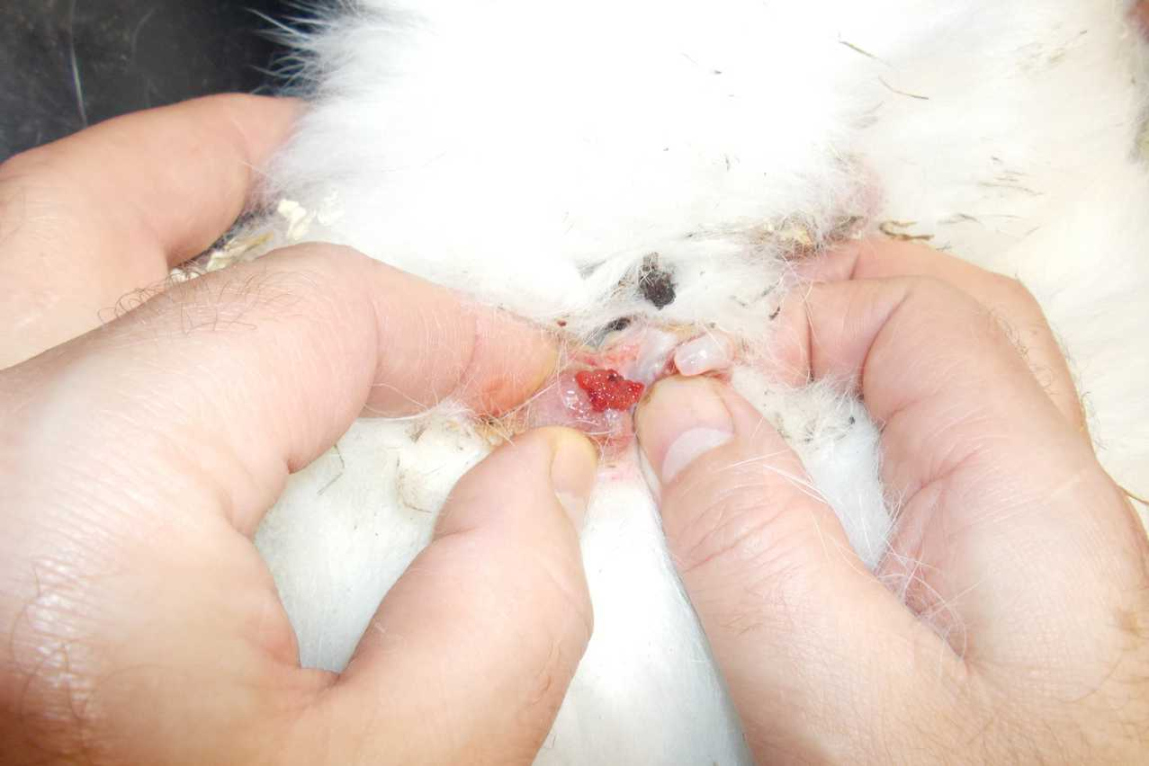Why is My Rabbit Bleeding?
Discovering that your rabbit is bleeding can be a distressing experience. There are several possible reasons why your rabbit may be bleeding, and it is essential to take immediate action to address the issue. This article will explore some common causes of rabbit bleeding and provide guidance on what to do if you find your rabbit in this situation.

1. Injury
Rabbits are curious and active animals, and they can easily injure themselves while exploring their environment. If your rabbit is bleeding, check for any visible wounds or signs of trauma. Common causes of rabbit injuries include sharp objects, rough handling, or even aggressive behavior from other pets in your household. It is crucial to carefully inspect your rabbit’s body, paying attention to areas like the ears, nose, paws, and tail, as these are more prone to injuries.
2. Dental Problems
Rabbits have constantly growing teeth, and if their teeth become misaligned or overgrown, it can lead to dental problems. These issues can cause pain and discomfort, leading to bleeding from the mouth or excessive drooling. If you suspect dental problems, it is essential to consult a veterinarian who specializes in rabbit care. They can examine your rabbit’s teeth and recommend appropriate treatment options, such as teeth filing or extractions.
3. Gastrointestinal Issues
Rabbits have a delicate digestive system, and any disruption can lead to gastrointestinal problems. Conditions like gastrointestinal stasis, also known as a stomach slowdown, can cause bleeding from the digestive tract. Other signs of gastrointestinal issues may include changes in appetite, bloating, diarrhea, or constipation. If your rabbit displays these symptoms alongside bleeding, it is crucial to seek veterinary attention promptly to prevent further complications.
4. Urinary Tract Infections
Urinary tract infections (UTIs) are common in rabbits and can cause bleeding in the urine. If you notice blood or a pinkish tinge in your rabbit’s urine, it is likely a sign of a UTI. Other symptoms may include frequent urination, straining to urinate, or urinating outside the litter box. A veterinarian can perform tests to confirm the presence of a UTI and prescribe appropriate antibiotics to treat the infection.
5. External Parasites
Rabbits can suffer from various external parasites, such as fleas, mites, or ticks. These parasites can cause itching, irritation, and even skin wounds, leading to bleeding. Regularly check your rabbit’s fur and skin for any signs of parasites or their droppings. If you suspect an infestation, consult a veterinarian who can recommend suitable treatment options to eliminate the parasites and alleviate your rabbit’s discomfort.
6. Reproductive Issues
If your rabbit is female and has not been spayed, bleeding may be related to reproductive issues. Female rabbits can experience problems like uterine cancer, uterine bleeding, or complications during pregnancy or birth. It is crucial to consult a veterinarian experienced in rabbit reproductive health to assess the situation accurately and provide appropriate treatment options.
What to Do If Your Rabbit is Bleeding
Discovering your rabbit bleeding can be alarming, but it is crucial to remain calm and take immediate action. Follow these steps if you find your rabbit in this situation:
- Assess the Severity: Examine the bleeding to determine if it is minor or severe. Minor bleeding that stops quickly may not require immediate veterinary attention, but it is still advisable to contact a veterinarian to discuss the situation and ensure proper care.
- Apply First Aid: If the bleeding is severe or continues, apply gentle pressure to the affected area using a clean cloth or gauze pad. Avoid using excessive force to prevent causing more harm to your rabbit.
- Contact a Rabbit Veterinarian: Call your rabbit veterinarian immediately and describe the situation. They can provide guidance on the next steps to take based on the severity and cause of the bleeding. It is crucial to follow their instructions carefully.
- Transport Safely: If your rabbit requires immediate veterinary attention, carefully transport them to the veterinarian’s office. Use a secure carrier or box lined with a soft towel to ensure your rabbit’s safety and minimize stress during transportation.
Remember, it is always better to seek veterinary advice when your rabbit is bleeding, as they can assess the situation properly and provide appropriate treatment.
Frequently Asked Questions (FAQs)
1. Can rabbits get nosebleeds?
Yes, rabbits can get nosebleeds. Nasal bleeds can be caused by respiratory infections, nasal tumors, or trauma. If your rabbit experiences a nosebleed, it is essential to consult a veterinarian to determine the underlying cause and provide appropriate treatment.
2. Should I clean my rabbit’s wounds if they are bleeding?
If your rabbit has visible wounds that are bleeding, it is generally best to leave the cleaning to a veterinarian. However, you can use a clean cloth dampened with warm water to gently remove any dirt or debris around the wound, making sure not to apply excessive pressure or cause additional pain to your rabbit.
3. Can stress cause bleeding in rabbits?
Stress can contribute to various health issues in rabbits, including gastrointestinal problems. While stress itself may not directly cause bleeding, it can weaken the immune system and increase the likelihood of developing conditions that may lead to bleeding. It is crucial to provide your rabbit with a calm and secure environment to minimize stress.
4. Should I give my bleeding rabbit medication?
You should never self-medicate your rabbit without consulting a veterinarian. Administering inappropriate medication can worsen the condition or cause adverse reactions. Always seek professional veterinary advice to ensure your rabbit receives the correct diagnosis and appropriate treatment.
Related Articles…
Copyright Notice:
All images featured on this site are sourced from the internet, copyrights belong to respective owners. Should you own any image and require it to be removed, please contact us.